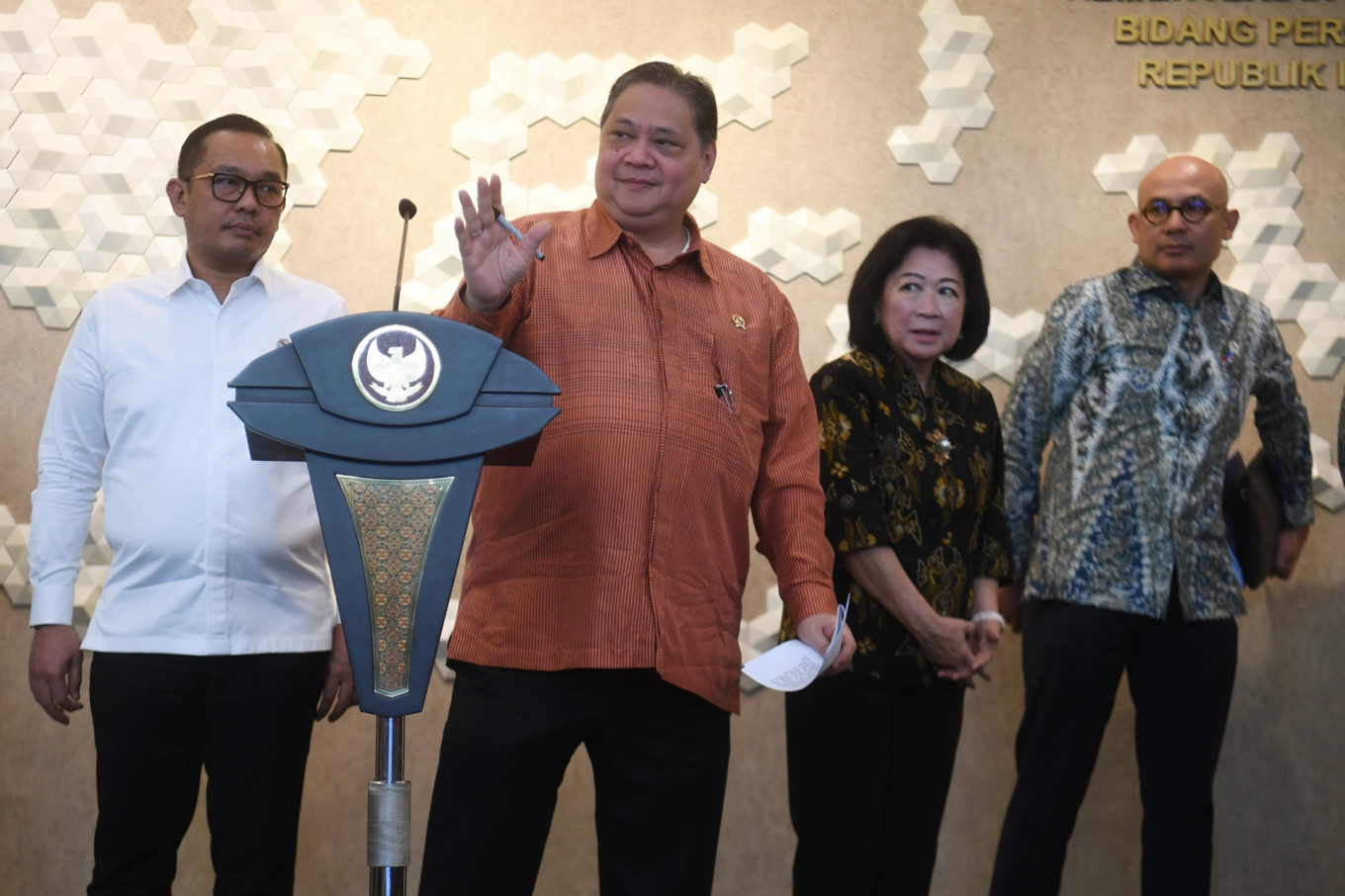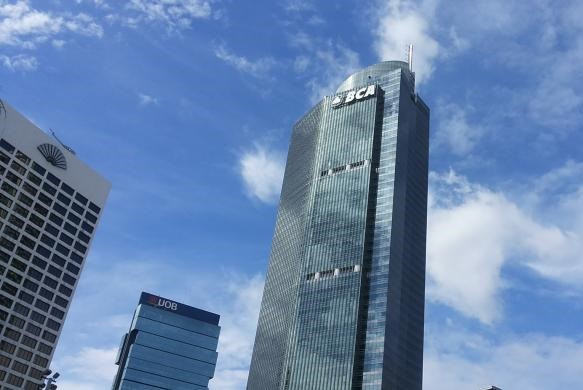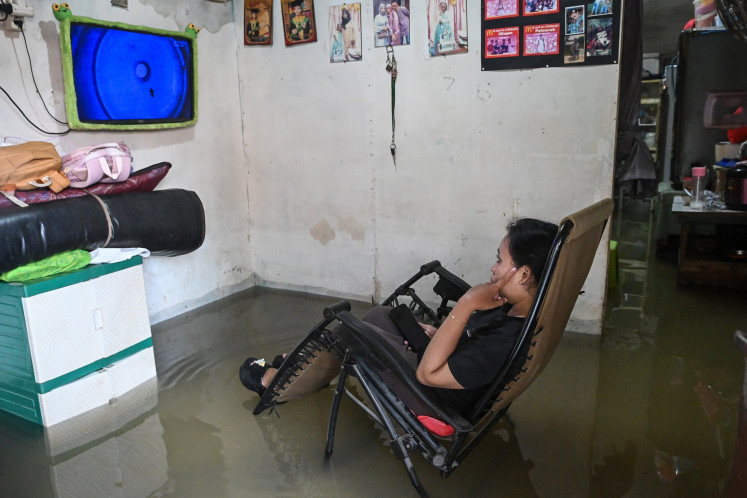Popular Reads
Top Results
Can't find what you're looking for?
View all search resultsPopular Reads
Top Results
Can't find what you're looking for?
View all search resultsIndonesia says US trade deal reached after 'extraordinary struggle'
Trump outlined an Indonesia deal similar to a preliminary pact struck recently with Vietnam, with a flat tariff on exports to the US roughly double the current 10 percent and no levies on US exports to Indonesia.
Change text size
Gift Premium Articles
to Anyone
 Coordinating Economic Minister Airlangga Hartarto (second left) waves to journalists as he leaves the stage along with Deputy Investment and Downstream Minister Todotua Pasaribu (left), National Economic Council (DEN) deputy head Mari Elka Pangestu (second right) and Second Deputy Foreign Minister Arrmanatha Nasir (right) during a press briefing on April 14, 2025, after a meeting about the United States tariff negotiation held at Airlangga's office in Jakarta. (Antara/Akbar Nugroho Gumay)
Coordinating Economic Minister Airlangga Hartarto (second left) waves to journalists as he leaves the stage along with Deputy Investment and Downstream Minister Todotua Pasaribu (left), National Economic Council (DEN) deputy head Mari Elka Pangestu (second right) and Second Deputy Foreign Minister Arrmanatha Nasir (right) during a press briefing on April 14, 2025, after a meeting about the United States tariff negotiation held at Airlangga's office in Jakarta. (Antara/Akbar Nugroho Gumay)
I
ndonesia said on Wednesday it had reached a trade deal with the United States after an "extraordinary struggle" in negotiations which resulted in a reduction of proposed US tariff rates on the Southeast Asian country's exports to 19 percent from 32 percent.
US President Donald Trump said on Tuesday a deal had been struck after he spoke to Indonesian President Prabowo Subianto. The deal is among only a handful reached so far by the Trump administration ahead of an August 1 deadline for negotiations.
"This is an extraordinary struggle by our negotiating team led by the Coordinating Minister for Economic Affairs," Hasan Nasbi, the Indonesian president's spokesperson, told reporters on Wednesday.
Hasan said Prabowo had also negotiated directly with Trump over the phone, without giving further details. He said Prabowo would hold a press conference later on Wednesday after returning from a foreign trip.
Indonesia - the world's fourth-largest country and a member of G20 - ran a goods trade surplus of $17.9 billion with the United States in 2024, according to the US Trade Representative.
Hasan called the deal a "meeting point" between the two governments, and said Indonesia's tariff rate was much lower than other countries in Southeast Asia.
Indonesia, Southeast Asia's largest economy, has committed to purchasing 50 Boeing jets, $15 billion in US energy, and $4.5 billion in US agricultural products as part of its trade agreement with the United States, Trump said.
Trump outlined an Indonesia deal similar to a preliminary pact struck recently with Vietnam, with a flat tariff on exports to the US roughly double the current 10 percent and no levies on US exports to Indonesia. It also included a penalty rate for so-called transshipments of goods from China via Indonesia.
Indonesia's stock index rose as much as 0.7 percent on Wednesday after the deal, which some analysts said would provide a positive catalyst for economic activities.
"Well, 19% is better than 32 percent," Matt Simpson, a senior market analyst at City Index in Brisbane, said.
"Indonesian non-oil exports such as footwear and textiles will take a hit, but energy and agriculture are set to gain. Officials are of course pleased because they're in Trump's good books," he added.
Natixis warned the Indonesian economy would still be affected by Trump's tariffs on China - Indonesia's biggest trade partner.
Myrdal Gunarto, an economist with Maybank Indonesia, described the deal as relatively good, as Jakarta is getting a tariff below those imposed on other Southeast Asian neighbours.
"(The deal) opens more space for domestic lower monetary policy rate," he said, predicting it would also trigger capital inflows.









